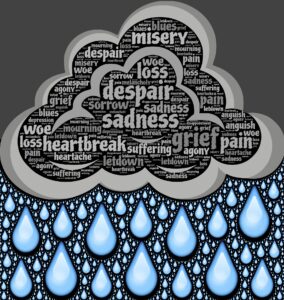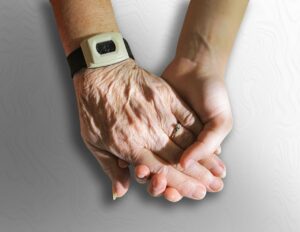
In recent weeks, I have become increasingly aware of those in various types of pain. A friend and also a family member who are experiencing physical pain. Extended family members endured the emotional pain of watching the physical pain of a loved one’s final days on earth. Others suffer pain related to aging or chronic illness.
Unless you have experienced unrelenting pain, physical or emotional, you can’t understand the anguish, frustration, and hopelessness.
How do you respond to your own pain or the pain of others? Following are some thoughts:

Avoid Minimizing Pain
Pain, whether emotional or physical, is an indicator that something needs attention. Often, we try to ignore pain or write it off as easily explainable. But pretending pain doesn’t exist doesn’t solve the problem.
Sometimes we minimize pain because we know treatment is involved or emotional pain will require processing hurtful issues. But delaying may make the situation worse.
At times, we look at what others are enduring and assume they are over-reacting or looking for sympathy. Avoid minimizing the pain of others, especially emotional pain.
An adage says something along the lines of don’t judge until you’ve walked a mile in my shoes. Each person’s pain affects them differently. What you may be able to withstand may be debilitating for others.

Take Steps to Alleviate Pain
Several years ago, I noticed a tooth was sensitive. Instead of making an appointment with the dentist, I chewed on the other side of my mouth and avoided food and drink that were too cold or too hot. Why? Because I was afraid the tooth would require a root canal and my past experiences with root canals was extremely unpleasant.
Often, past experiences cause us to delay taking steps to alleviate pain, but ultimately, we create additional suffering by not addressing the issue when it first surfaces. Physical pain slows us down. Emotional pain cripples in many ways. To maintain forward motion, take the necessary steps to alleviate pain.

Expect Emotions
While with my husband in the ER last year, I heard the booming, yet muffled voice of a doctor in the cubical next door, followed by uncontrollable crying to the point of wailing. A flurry of activity ensued. Later, personnel rolled the woman’s bed past, and I saw she was on a ventilator.
Pain spawns a bevy of emotion—fear, anxiety, anger, frustration, hopelessness. Emotions are especially prevalent regarding the pain of loss, betrayal, and grief. It’s okay to feel any or all of these emotions, and more, when in pain. Avoid stuffing emotions. Expect emotions associated with pain and allow yourself to experience them.

Be Available to the Suffering
My paternal grandmother was a little woman who had asthma and arthritis. She used a walker to assist movement and whistled a nondescript, semi-breathless tune as she walked. I asked her once why she whistled as she walked. Her reply was simple, “It takes my mind off the pain.”
Often those around us are suffering physical or emotional pain. With perception, we can see their struggles and be a source of support. It may be a simple gesture—a text message, phone call, a note, or an offer to help. Don’t hesitate because you don’t know what to say. If someone repeatedly comes to mind, don’t ignore the prompt. Make contact. Offer help. Pray.
Your past experience with pain will guide you in encouraging others who are suffering.

Pray
Although many discount prayer, it is powerful and effective. Talking to God about your own pain, and that of others, helps you process what you are experiencing and support those who are in similar situations. Prayer connects us to the Father, from whom we receive comfort, hope, and peace. Take your pain to God and expect to see improvement and encouragement.
“All praise goes to God, Father of our Lord Jesus, the Anointed One. He is the Father of compassion, the God of all comfort. He consoles us as we endure the pain and hardship of life so that we may draw from His comfort and share it with others in their own struggles” (2 Corinthians 1:3-4 VOICE).
©CandyArrington

Candy Arrington is a writer, blogger, speaker, and freelance editor. She often writes on tough topics with a focus on moving through, and beyond, difficult life circumstances. Candy has written hundreds of articles, stories, and devotionals published by numerous outlets including: Inspiration.org, Arisedaily.com, CBN.com, Healthgrades.com, Care.com, Focus on the Family, NextAvenue.org, CountryLiving.com, and Writer’s Digest. Candy’s books include Life on Pause: Learning to Wait Well (Bold Vision Books), When Your Aging Parent Needs Care (Harvest House), and AFTERSHOCK: Help, Hope, and Healing in the Wake of Suicide (B&H Publishing Group).
To receive Candy’s blog, Forward Motion, via email, go to https://candyarrington.com/blog/ and scroll to the bottom of the page to sign up.


2 Comments
Yes to all the above!
Great helps in a time of distress in every way!
Thank you. Thinking of you, Rhonda, and praying on your behalf.